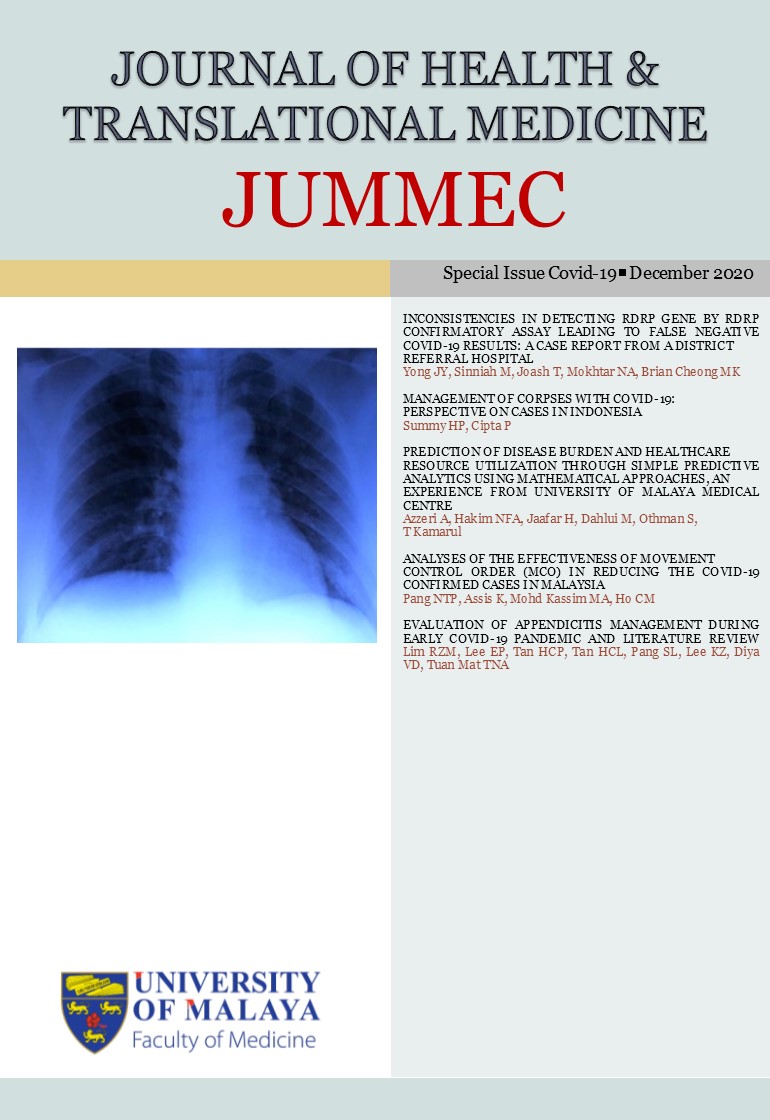INCONSISTENCIES IN DETECTING RDRP GENE BY RDRP CONFIRMATORY ASSAY LEADING TO FALSE NEGATIVE COVID-19 RESULTS: A CASE REPORT FROM A DISTRICT REFERRAL HOSPITAL
Received 2020-08-27; Accepted 2020-09-15; Published 2020-12-10
DOI:
https://doi.org/10.22452/jummec.sp2020no1.2Keywords:
SARS-CoV-2, COVID-19, RT-PCR, False Negative, Prolonged Viral SheddingAbstract
Reverse transcriptase polymerase chain reaction (RT-PCR) assays for coronavirus disease 2019 (COVID-19) should be interpreted with clinical, epidemiological history and exposure risk to avoid misdiagnosis. We report a cruise-ship worker with significant travelling history, presented with acute respiratory symptoms and radiographic evidence of viral pneumonia. Initial RNA-dependent RNA polymerase (RdRp) gene confirmatory assay was negative. Use of a more robust RT-PCR assay detected ORF1ab, N and S genes for COVID-19, and the diagnosis was supported by an IgM and IgG positive COVID-19 serology. Subsequent follow up samples which reported inconsistencies in detecting RdRp gene also raise the concern of reliability of RdRp gene as the confirmatory assay for diagnosis of COVID-19. Patient later had prolonged viral shedding beyond serological recovery, with a negative viral culture reflecting non-infectivity.
Downloads
Downloads
Published
Issue
Section
License
All authors agree that the article, if editorially accepted for publication, shall be licensed under the Creative Commons Attribution License 4.0 to allow others to freely access, copy and use research provided the author is correctly attributed, unless otherwise stated. All articles are available online without charge or other barriers to access. However, anyone wishing to reproduce large quantities of an article (250+) should inform the publisher. Any opinion expressed in the articles are those of the authors and do not reflect that of the University of Malaya, 50603 Kuala Lumpur, Malaysia.


